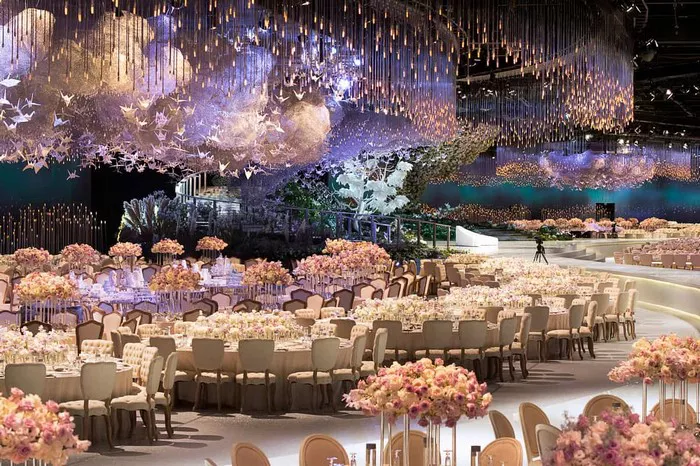The wedding industry has undergone a dramatic transformation in recent years, with couples facing both unprecedented possibilities and unique challenges in planning their big day. According to a recent report by The Knot, the average wedding now costs $38,700 (excluding the honeymoon), representing a 25% increase from pre-pandemic levels. This surge reflects not just inflation, but changing expectations about what constitutes a memorable celebration in the post-lockdown era.
The Rise of Micro-Weddings and Elopements
One of the most significant shifts has been the growing popularity of intimate weddings. What began as a pandemic necessity has evolved into a preferred choice for many couples, with 42% now opting for ceremonies with fewer than 50 guests (up from just 18% in 2019). These micro-weddings allow for greater budget allocation per guest and often enable more exotic locations. Destination elopements have seen particular growth, with wedding planners reporting a 300% increase in inquiries for locations like Icelandic cliffs, Moroccan riads, and Patagonian wilderness lodges.
“The psychology behind this shift is fascinating,” notes Dr. Elaine Harris, a sociologist specializing in marriage rituals. “After years of restricted gatherings, couples are prioritizing authentic experiences over spectacle. They want their wedding to reflect their true relationship rather than societal expectations.”
Technology Revolutionizes Wedding Planning
Digital tools have democratized wedding planning while creating new challenges. Apps like Zola and Joy now offer all-in-one platforms for registries, seating charts, and vendor coordination, with AI-powered tools that can suggest color schemes based on a couple’s Instagram feed or predict guest turnout with 85% accuracy. Virtual reality venue tours have become standard, saving couples an average of 42 hours in planning time.
However, this digital convenience comes with a downside. “Decision paralysis is real,” warns celebrity wedding planner Marcy Blum. “With infinite Pinterest possibilities and Instagram comparisons, couples are more stressed than ever about making ‘perfect’ choices. We’re seeing a 40% increase in pre-wedding therapy sessions specifically about planning anxiety.”
Sustainability Takes Center Stage
Eco-conscious weddings have moved from niche to mainstream, with 68% of couples now incorporating sustainable elements according to Green Bride Guide research. Innovations include:
- Digital invitations (adopted by 89% of couples)
- Plantable seed paper favors
- Carbon-offset honeymoon packages
- “Second-life” wedding dress marketplaces growing 200% annually
“Today’s couples aren’t just thinking about their day—they’re considering their legacy,” explains sustainability consultant Rebecca Gardner. “Many are opting for living memorials like tree-planting ceremonies instead of traditional guest books.”
The Vendor Crunch and Creative Solutions
Post-pandemic labor shortages continue to plague the wedding industry, with 1 in 3 vendors reporting they’ve reduced services or increased prices. This has led to innovative workarounds:
Non-traditional venues like museums and libraries now account for 38% of weddings
Weekday weddings have grown from 12% to 27% of events
“Pop-up” caterers and florists offering lower-cost seasonal options
Perhaps most surprisingly, the average engagement period has stretched to 18 months (up from 14 in 2019), largely due to venue and vendor availability.
Cultural Fusion and Personalization
Modern weddings increasingly reflect blended traditions, with 53% of couples incorporating elements from multiple cultures. Popular fusion trends include:
Jewish-Indian “Jewdi” ceremonies with henna and hora dancing
Korean-American paebaek tea ceremonies followed by Western receptions
Nigerian-Scandinavian attires combining aso-oke and minimalist design
Personalization now extends to every detail, from custom scent stations that match the couple’s favorite fragrances to interactive food experiences replacing traditional buffets. Mixologists report a 75% increase in requests for signature cocktails based on the couple’s relationship story.
As wedding planner Jung Lee summarizes: “The only rule in modern weddings is that there are no rules. Today’s couples aren’t just planning an event—they’re curating an experience that tells their unique love story.”
With the industry expected to grow to $100 billion globally by 2025, one thing is certain: wedding planning will continue evolving as rapidly as the relationships it celebrates. The challenge for modern couples lies in balancing their vision with reality—creating meaningful celebrations without losing sight of the marriage that comes after the wedding day.


